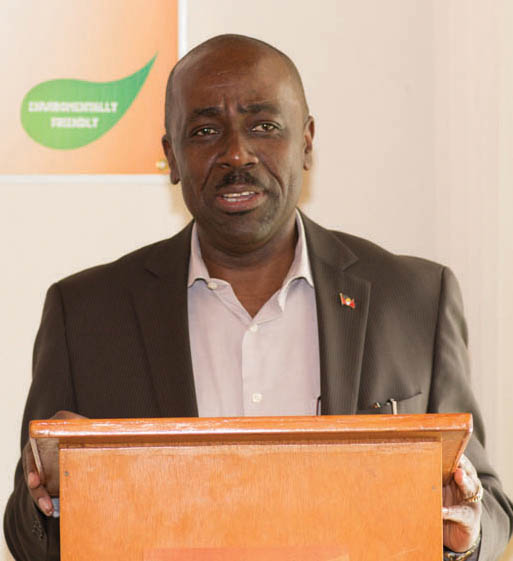By Orville Williams
Following news that health authorities in Barbados have named Antigua and Barbuda a ‘high-risk’ country for Covid-19, the Minister of Foreign Affairs, EP Chet Greene, has questioned the rationale behind that decision.
According to Barbados Today, more than 50 countries were named in the country’s high-risk category, effective November 3. Of these, 14 are from the region, including Antigua and Barbuda.
As part of the protocols, “all persons travelling to Barbados from high and medium-risk countries must have a negative Covid-19 PCR test done at an accredited or certified facility within three days prior to arrival”.
It continues, “All high-risk passengers are required to quarantine at a designated hotel or approved villa at their own expense, or free of charge at a government facility up to the time of a second test, which will be four to five days after the first test. At the end of the period, if they test negative, they are discharged from quarantine, but will continue to be monitored for seven days from the time of arrival.”
These changes to Barbados’ travel rules will undoubtedly impact countries within the region and the move raises questions, given the establishment of a Caricom travel bubble just last month.
Greene is one of those querying the move to place Antigua and Barbuda in that high-risk category and, speaking to Observer yesterday, the Minister expressed confusion, noting the relatively successful management of the virus here in the country.
“The question is, what’s the motivation with Barbados? I mean, the facts speak for themselves; the management of Covid in Antigua is exemplary. The number of active cases [and] recoveries, you name it…to the extent that there are accolades coming in to this country’s management [of Covid] from all quarters.
“So, the question begs itself, what is the motivation? Barbados, you notice, did not grade themselves. They graded every other Caribbean country except themselves, so maybe they need to tell us where they stand. If this is going to be a war for numbers, in terms of [the] limited tourist arrivals to the region, it is a worthless way to do it,” Greene said.
The minister also confirmed that he reached out to officials from Barbados to get clarity on the situation.
“I did give a complimentary call to my counterpart Foreign Affairs Minister in Barbados to discuss this matter. Whatever the motivation, it would be interesting to know what it is, so that we can speak to it, address it, or simply get an understanding of what it is that they’re seeing and saying,” he told Observer.
Greene also commented on the move by some other countries, to ‘break free’ of the regional travel bubble and heighten their own vigilance.
“We can’t speak for other countries and how they manage Covid or anything [else] for that matter. I think, by and large, the people in this country are satisfied with the government’s management of Covid and so we will not resile away from the bubble concept, which was discussed and agreed by Caricom.
“Yes, we are quite mindful that the Covid virus presents a major challenge to the resources and the health of the respective Caribbean countries, so governments – in their own discretion – make decisions based on how they’re able to cope with or manage the situation,” he explained.
He insisted, though, that at this moment in time, there was no reason for Antigua and Barbuda to make any decisions in contravention of the regional travel bubble.
“We do not see any need at this moment to burst the bubble, but we cannot maintain a bubble on our own. As we put LIAT back in the skies, as we look at the management of the health and economic challenges that Covid presents, and based on our own track record of managing this situation, we don’t need to panic.
“What we’ll do instead, is continue to insist and to encourage our citizens and persons visiting Antigua and Barbuda, to respect those protocols established … there’s no need to copycat or follow suit and burst the bubble, like others,” Greene said.
The other regional countries included in Barbados’ high-risk category are the Bahamas, the British Virgin Islands, the Cayman Islands, Cuba, Dominican Republic, Guyana, Haiti, Jamaica, Martinique, Puerto Rico, Trinidad and Tobago, Turks & Caicos Islands, and the US Virgin Islands.
‘Medium risk’ countries include Bermuda, St Lucia, and St Vincent and the Grenadines, while countries deemed ‘very low risk’ include Anguilla, Dominica, Grenada, Montserrat, and St Kitts and Nevis.

